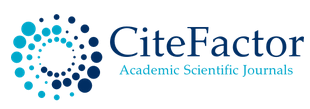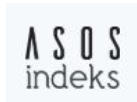Kapsayıcı Eğitime Yönelik Farkındalık Ölçeğinin Geliştirilmesi: Geçerlik ve Güvenirlik Çalışması (Developing Awareness Scale for Inclusive Education: A Validity and Reliability Study)
Keywords:
Inclusive education, awareness, scale, teacherAbstract
The aim of this study is to develop a measurement tool to measure teachers' awareness levels of inclusive education. The study group of the study according to the easily accessible sampling method consists of 302 teachers working in 14 branches in 8 schools, 3 primary schools, and 5 secondary schools affiliated to the Ministry of National Education in the central district of Aksaray in the spring semester of the 2020-2021 academic year. An exploratory factor analysis was performed to determine the construct validity of the scale based on the data obtained. As a result of the analysis, it was concluded that the scale has a five sub-dimension. In order to determine the reliability level of the scale, the internal consistency level was calculated. As a result, it can be said that the developed scale is a valid and reliable tool that can be used to determine teachers' awareness of inclusive education.
References
Ainscow, M. (2005). Developing inclusive education systems: What are the levers for change? Journal of Educational Change 6(2), 109-124.
Alquraini, T. & Gut, D. (2012). Critical components of successful inclusion of students with severe disabilities: Literature review. International Journal of Special Education, 27(1), 42-59.
Baglieri, S., Bejoian, L. M., Broderick, A. A., Connor, D. J. & Valle, J. (2011). [Re]claiming “Inclusive education” toward cohesion in educational reform: Disability Studies unravels the myth of the normal child. Teachers College Record, 113(10), https://search.proquest.com/pqdtglobal/docview/1367591726 sayfasından erişilmiştir.
Bayram, B. (2019). Sosyal bilgiler öğretmenlerinin kapsayıcı eğitime yönelik algı ve uygulamaları. Yüksek Lisans Tezi, Erciyes Üniversitesi, Eğitim Bilimleri Enstitüsü, Kayseri.
Büyüköztürk, Ş. (2002). Faktör analizi: Temel kavramlar ve ölçek geliştirmede kullanımı. Kuram ve Uygulamada Eğitim Yönetimi, 32, 470-483.
Büyüköztürk, Ş. (2010). Sosyal bilimler için veri analizi el kitabı, (12.Baskı). Ankara: Pegem.
Çokluk, Ö., Şekercioğlu, G. & Büyüköztürk, Ş. (2010). Sosyal bilimler için çok değişkenli istatistik SPSS ve LISREL uygulamaları. Ankara: Pegem.
Graham, L. & Scott, W. (2016). Teacher preparation for inclusive education: Initial teacher education and in-service professional development, Melbourne Graduate School of Education/ Prepared for the Victorian Department of Education&Training.Australia.http://www.deafeducation.vic.edu.au/Documents/NewsE vents/Li tRevIncTe.pdf sayfasından erişilmiştir.
Henninger, W. & Gupta, S. (2014). How do children benefit from inclusion? http://archive.brookespublishing.com/documents/gupta-how-childrenbenefit-from- inclusion.pdf sayfasından erişilmiştir.
Hiebert, J., Gallimore, R. & Stigler, J.W. (2002). A knowledge base for the teaching profession: What would it look like and how can we get one? Educational Researcher, 31(5), 3-15.
Kan, A. (2007). Portfolyo değerlendirme. Hacettepe Üniversitesi Eğitim Fakültesi Dergisi, 32, 133-144.
Kayış, A. (2010). Güvenilirlik analizi [Reliability analysis]. Ş. Kalaycı (Ed.), SPSS uygulamalı çok değişkenli istatistik teknikleri (5. Baskı), (ss. 401-419). Ankara: Asil
Kırılmaz, M. C. & Öntaş, T. (2020). Examination of implementing inclusive education towards refugees by elementary school teachers. HAYEF: Journal of Education, 17, 51-82.
Korkmaz, Ö. & Yeşil, R. (2011). Medya ve televizyon okuryazarlık düzeyleri ölçeği geçerlilik ve güvenirlik çalışması. Uluslararası İnsan Bilimleri Dergisi, 8(2), 110-126.
Kortman, W. (2001, October). The indispensable role of special education. Paper presented at the Australian Association of Special Education, Melbourne.
Lewis, R. B. & Doorlag, D. H. (1999). Teaching special students in general education classrooms. NJ: Prentice Hall.
Mullen, C. A. (2001). Disabilities awareness and the preservice teacher: A blueprint of a mentoring intervention. Journal of Education for Teaching, 27(1), 39-61.
Özgüven, İ. E. (2011). Psikolojik testler. Ankara: PDREM
Şencan, H. (2005). Sosyal ve davranışsal ölçümlerde güvenilirlik ve geçerlilik. Ankara: Seçkin.
Şimşek, Ü. (2019). Sosyal bilgiler öğretmenlerinin kapsayıcı eğitime yönelik tutum ve özyeterlikleri ile sınıf içi uygulamalara ilişkin görüşlerinin karşılaştırılması. Doktora Tezi, Gazi Üniversitesi, Eğitim Bilimleri Enstitüsü, Ankara.
Şimşek, Ü. (2020). Investigation of the postgraduate theses about inclusive education in Turkey. In T. Çetin, Y. Dikmenli & A. Sezer (Eds.). New trends in educational sciences (pp.413- 424). Lithuania: SRA Academic Publishing.
Şimşek, Ü. & Kılcan, B. (2019). Inclusive education through the eyes of teachers. International Journal of Psychology and Education Studies (IJPES), 6(3), 27-37.
Tavşancıl, E. (2010). Tutumların ölçülmesi ve SPSS ile veri analizi (4. Baskı). Ankara: Nobel.
Toson, A. L. M., Burrello, L. C. & Knollman, G. (2013). Educational leadership for all: The capability approach and inclusive educational leadership. International Journal of Inclusive Education, 17(5), 490-506.
Travers, J., Balfe, T., Butler, C., Day, T., Dupont, M., McDaid, R., O’Donnell, M. & Prunty,
A. (2010). Addressing the challenges and barriers to inclusion in Irish schools. Dublin: St Patrick's College.
UNESCO (2005). Guidelines for Inclusion. https://unesdoc.unesco.org/ark:/48223/pf0000140224 sayfasından erişilmiştir.
Vitello, S. J. & Mithaug, D. E. (Ed.). (1998). Inclusive Schooling: National and International Perspectives. Mahwah, NJ: Lawrence Erlbaum.
Yıldırım, E. (2017). Sosyal bilgiler dersinde sığınmacılara yönelik kapsayıcı eğitimin incelenmesi. Gazi Üniversitesi, Eğitim Bilimleri Enstitüsü, Doktora Tezi, Ankara.
Yüksel, S. (2009). Eğitim fakültesi öğrencilerinin informal etkileşimleri ve akademik başarılarıyla ilişkinin incelenmesi. Ahi Evran Üniversitesi Eğitim Fakültesi Dergisi, 10(2), 119-127.
Downloads
Published
How to Cite
Issue
Section
License
Copyright (c) 2024 Journal of Anatolian Cultural Research (JANCR)

This work is licensed under a Creative Commons Attribution-NonCommercial 4.0 International License.












